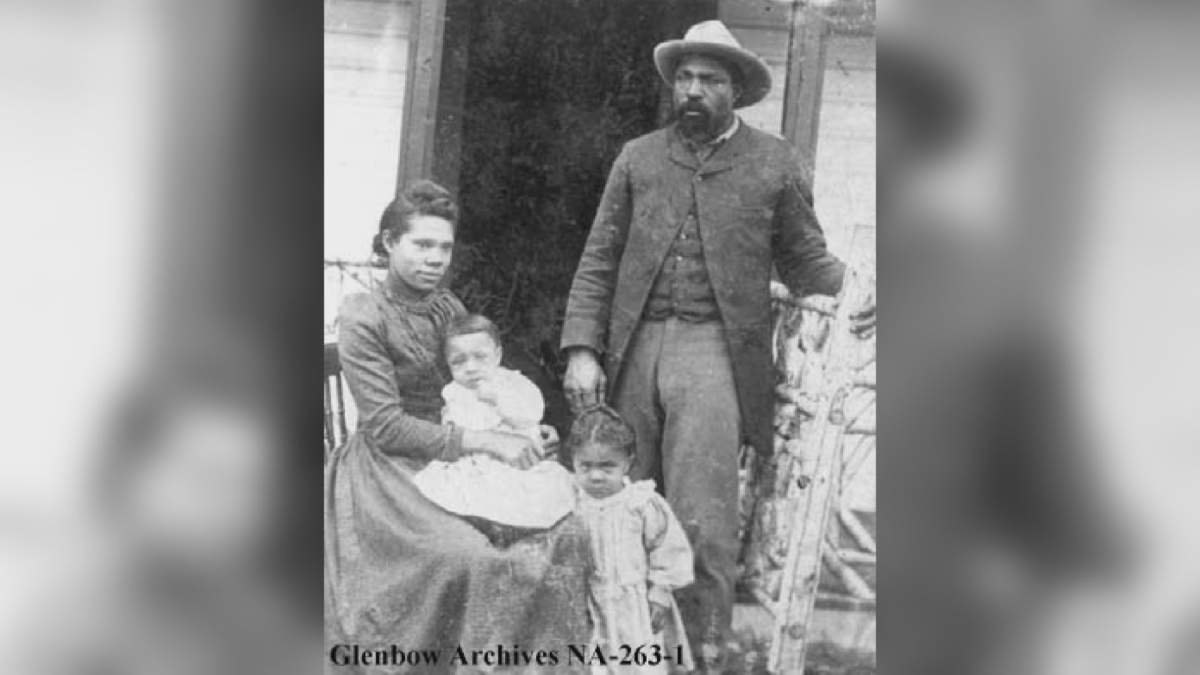The federal government has recognized John Ware, a Black cowboy in Western Canada, as a person of national historic significance.

Ware’s designation was commemorated Monday with the unveiling of a plaque at the Bar U Ranch National Historic Site south of Calgary.
Steven Guilbeault, the minister responsible for Parks Canada, says in a news release that Ware embodied the resilience and strength of Black Canadians.
Ware arrived in the district of Alberta in 1882 on a trail crew driving thousands of cattle to the site that became known as the Bar U Ranch.
He wrangled herds of large ranching outfits then built his own ranch with his wife, Mildred, and their children, before he died in 1905.
The government says Ware had a successful ranching career despite “racism, rough frontier conditions, and having been enslaved.”

Get breaking National news
The federal government, though its Historic Sites and Monuments Board of Canada, recognizes significant people, places and events that have shaped the country as a way to help Canadians connect with their past.
It accepts nominations as part of the program.
Janet Annesley, who nominated Ware, said Canadians still have a lot to learn about the experiences of Canada’s Black cowboys.
“The National Film Board’s John Ware Reclaimed by Cheryl Foggo exposed some difficult aspects of Ware’s story, ones we don’t like to see because racism is out of line with our western Canadian values of freedom and merit,” she said in the release.
“I nominated John Ware as a positive reminder that anyone of any colour or background can have a place in Canada’s story. Our rich diversity has never been a threat to who we are. It makes us who we are.”
Foggo, an author, playwright and filmmaker, said the acknowledgment of Ware illuminates him and his family.

“It makes his accomplishments in agriculture and his skills as a horseman visible to all who will read this plaque, while honouring the complexity of his life and situation,” she said.
“It also simply acknowledges that he was here.”
- Tumbler Ridge school shooting victim set to hopefully return home soon from Vancouver hospital
- Calgary family uses billboard in plea to find a kidney donor
- Alberta government announces purchase of new waterbombers to fight wildfires
- Edmonton police seek public help on investigation into fatal shooting







Comments
Want to discuss? Please read our Commenting Policy first.